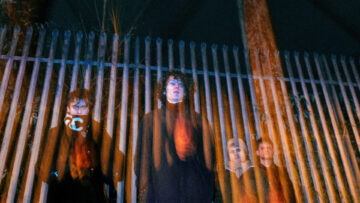
Life’s short. This much we know. Yet in a cruel kind of twist, it’s something we come to realise only as we get older – and, for many, it’ll arrive only when that sea of opportunity felt when young begins to fade.
That is, of course, unless something happens that’s so life-affirming that it snaps us out of our slumber; where notions like “Life’s short” and “Just do it” are no longer marketing slogans, they’re sincere principles to live by.
That’s exactly what happened to Pixey, the moniker of Liverpudlian singer-songwriter Lizzie Hillesdon.
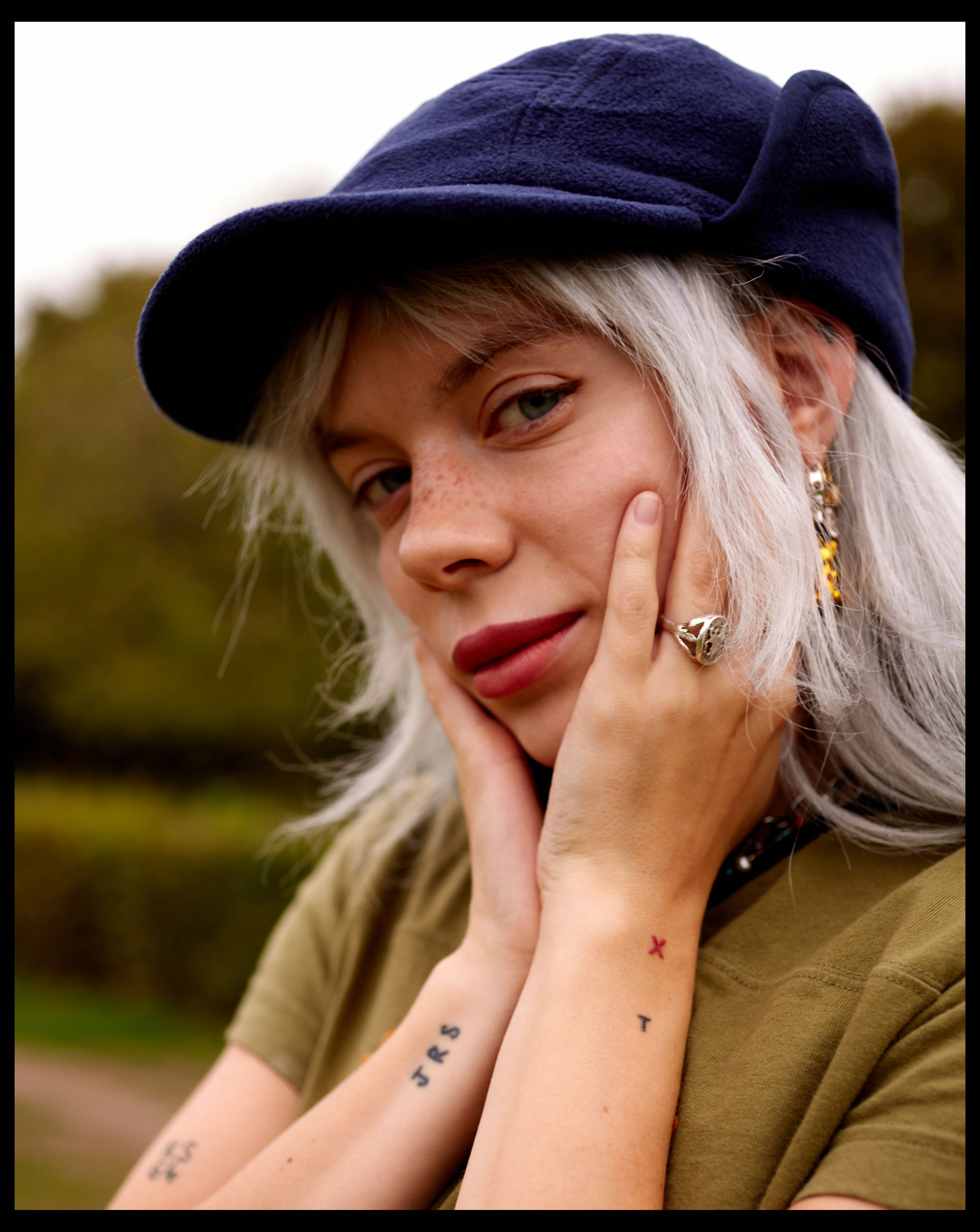
Photo: Ana Trindade
But enough of the heavy existentialism for a moment. Pixey’s in a jittery mood – the knife-edge of nerves and excitement – as we chat on a bench in Bethnal Green, just ahead of the release of her debut mini LP, Dreams, Pains & Paper Planes (which is out now).
“To be honest, I get really anxious about releasing music,” she admits, beneath the calm exterior of her soft Scouse cadence and bright blonde hair. “At first it was really exciting because there was no expectation. But the more you get into it, it doesn’t ruin the excitement, but it’s got more pressure around it.”
Such sentiment is by no means unreasonable, with the beady eyes of the music industry having increasingly cast its gaze on her since she was played on BBC Introducing in 2016. Since then, following her debut EP Colours in 2019, and her signing to the well-regarded Chess Club Records the following year, she’s been regularly touted as a rising star.
As its title suggests, last year’s EP, Sunshine State, continued to mark her out as an artist you could rely on for a pick-me-up; its punchy guitar riffs and cheery lyricism generating a world away from all your troubles. “Now let the sun shine, forget yesterday / ‘Cause we’re living, yeah, we’re living in the sunshine state,” its titular track beckons.
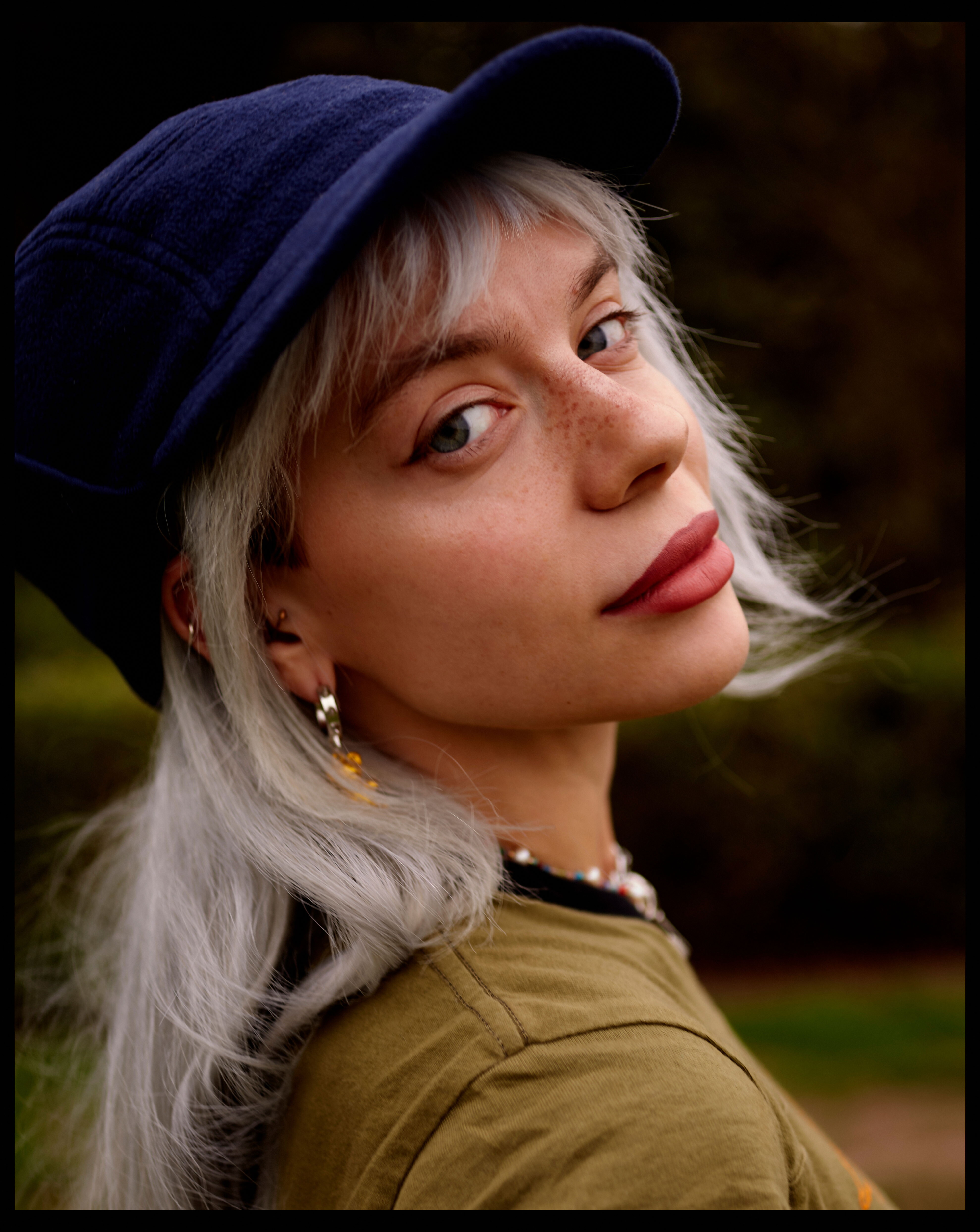
Photo: Ana Trindade
Today’s release, however, is a slightly broader ensemble of sounds and textures. It’s still replete with that sunny optimism and nostalgic breakbeat; opener ‘Recycled Paper Planes’ and ‘I’m Just High’ are the kind of tracks you need to listen to whilst driving carefree with the roof down, for instance. And there’s still an obvious warmth in the dream pop of ‘Come Around (Sunny Day)’.
For followers of Pixey, this much you know already, with those three tracks having already been released. Yet in some of the moments that follow on the EP, there are more melancholic, brooding periods, with “more of a broad mix of what Pixey can do,” she says. “It’s less conceptual, it doesn’t have a running theme or anything like that. I’ve had more songs to express, more feelings and moods, which is something I’ve tried to do before; but I think this time, I’ve got it sounding more coherent.”
Take album closer ‘In My House’, for instance, a pensive rounding-off to the mini-LP, with Pixey’s vocals at their most ethereal. Far from a concocted world where it never rains, this was very much based on Pixey’s real-world experience – written, she describes, “when I was probably at my absolute loneliness. It’s like a metaphor for my head and who I let in my life.”
“It’s kind of funny,” she says, able to laugh at the situation now, “because for the longest time, I always wanted my own place. Then when I got there, and it was just me, it was fucking lonely; it was really confronting.”
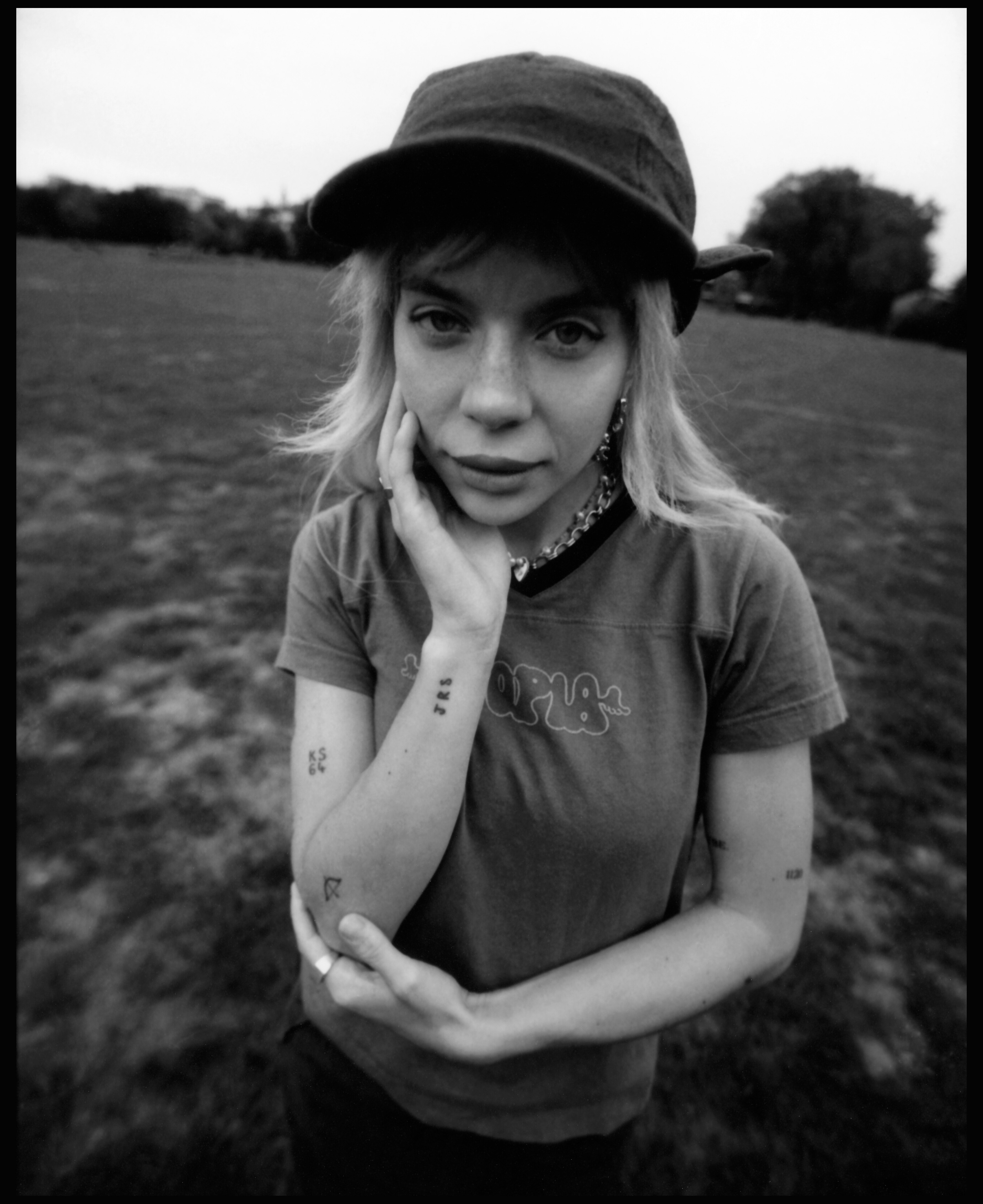
Photo: Ana Trindade
Or take ‘Kids’, for instance, an emotive, existentialist offering, lamenting, “Oh kids, what are we good for? Fuck this, it’s something we never asked for”. “It’s probably my favourite,” Pixey admits.
“There’s an underpinning of either melancholy,” she says, describing it further, “or me confronting feelings, trying to understand what the fuck is going on. I guess once you’ve survived something quite traumatic – and you’re just happy to be alive – then you have the time to think about things. You’re happy to be here, but there’s a lot of issues going on.”
Indeed, “a totally nihilistic song,” the track expresses feelings she had when recovering from a serious illness. One that very nearly took her life.
Whilst she was at university, Pixey suffered from something out of the blue, which took doctors months to diagnose. First, they thought it was meningitis; then they thought it was a brain haemorrhage. Eventually, they identified it as a systemic viral infection, which was slowly but surely attacking her body.
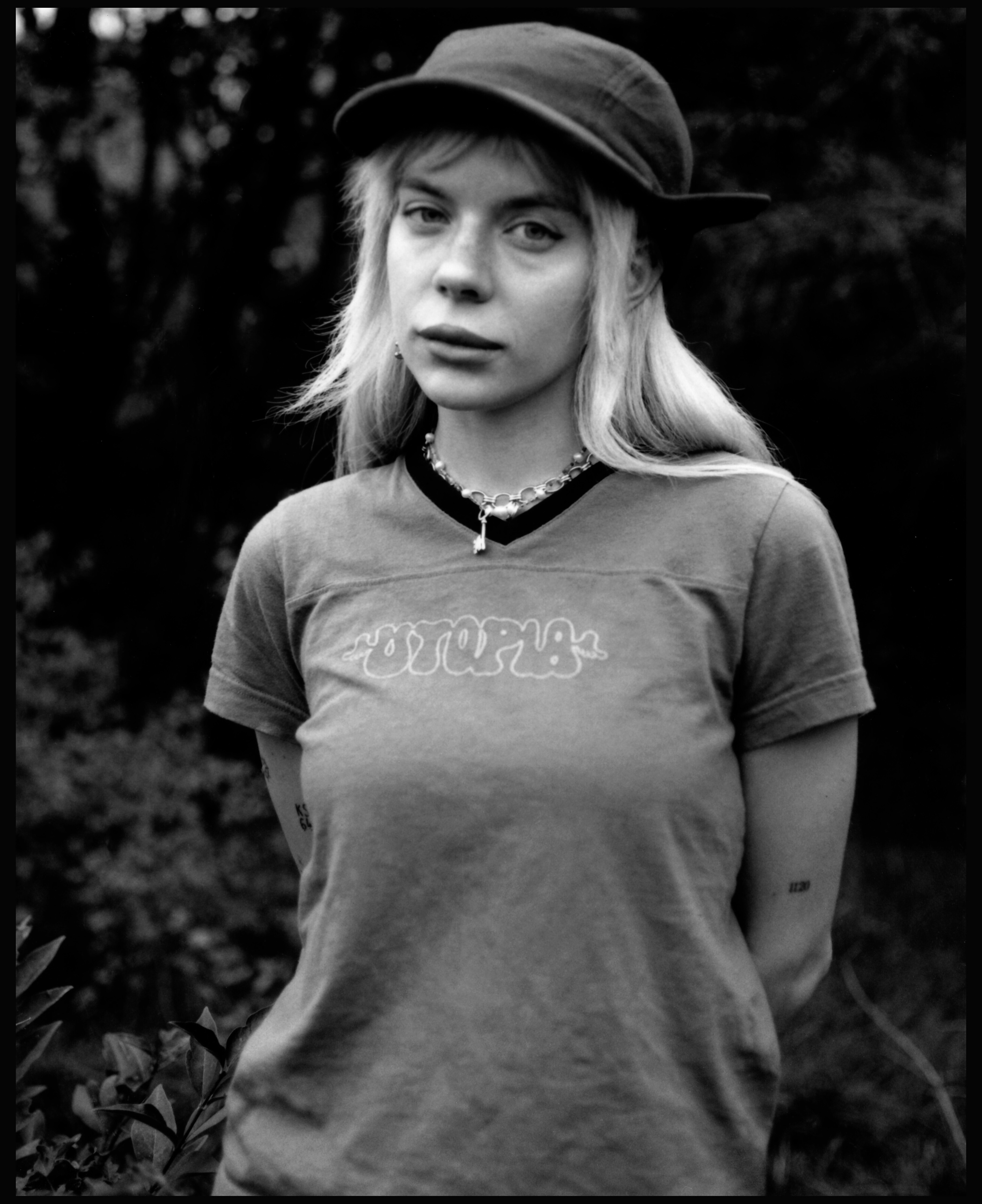
Photo: Ana Trindade
The illness became so severe that, at one stage, her parents were taken into a room and told not to expect her to make it through the night.
“Sometimes they don’t tell you, so I didn’t know I was potentially going to die. I just felt it, and I knew something was very wrong because I had several tubes coming out and an oxygen mask.”
“My chances [of survival] were really slim. And, honestly, I was kind of fighting. It’s really strange when you’re in that situation. One half of your body is trying to calm you down; your brain is trying to keep you calm. At the same time, it’s like, ‘I don’t want to die, I’m not ready; I haven’t had the chance to do anything.’ So it was a really strange feeling.”
By some minor miracle, Pixey awoke from the most troubling night, her temperature finally having dropped a bit. “Everyone was relieved; then it was just the long-haul to get better.”
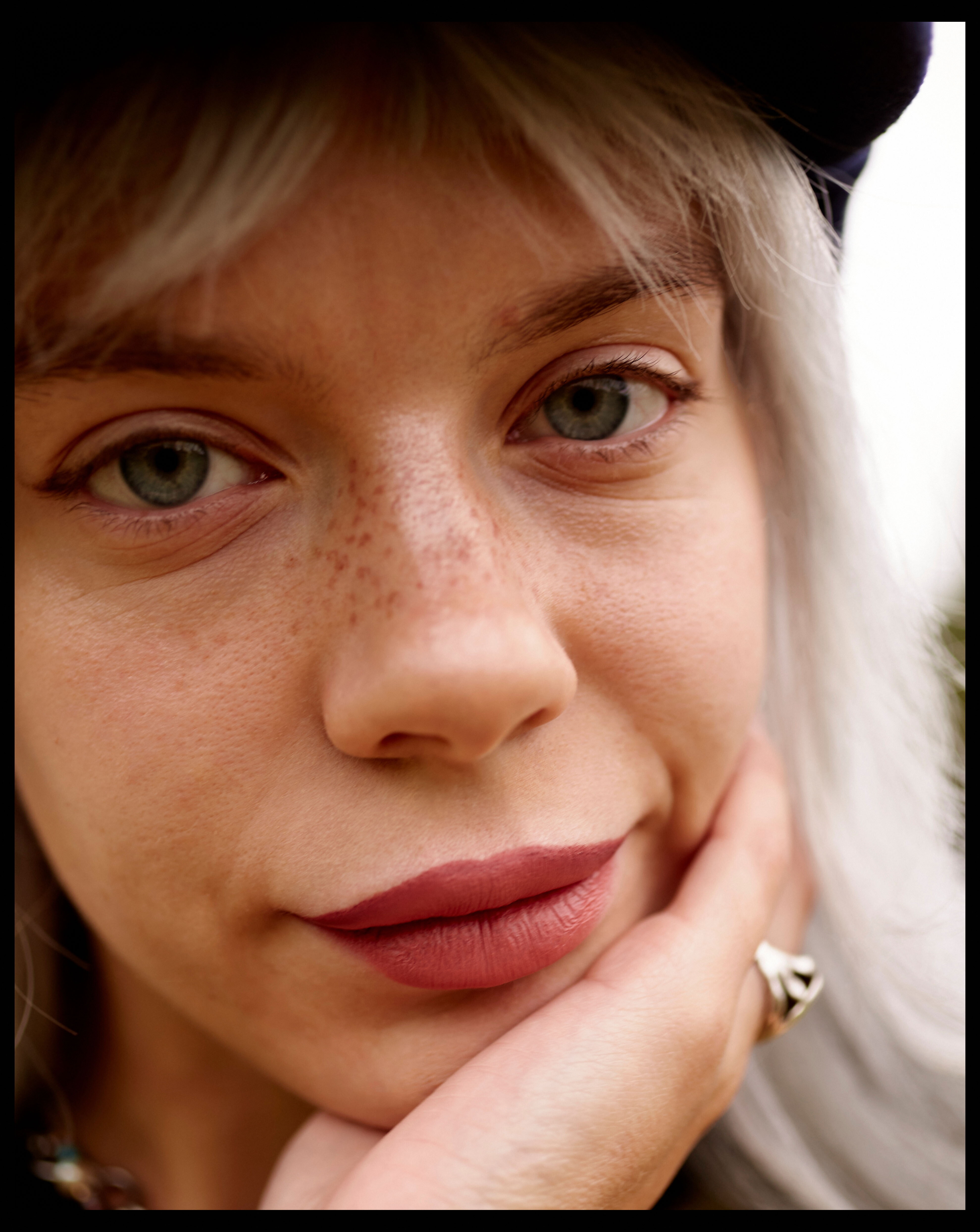
Photo: Ana Trindade
After more than a month-long stay at the hospital, “the most boring thing,” she says – again, able to lightly joke now – Pixey had “a lot of time to think and reflect on what it means to be alive and what I’m doing. Because the thoughts I had were, ‘I’ve never done anything that means something.’”
There’s something about the tedium of the hospital and illness that can ironically inspire not just a desire to create music, but the very sound itself. Jarvis Cocker, for instance, built the success of Pulp and their ‘Common People’ output after a long stint of contemplating life, whilst being bedridden in hospital.
For Pixey, she turned to music as that thing to provide meaning; something that had always been there, not least as part of the very fabric of her hometown, but also ever since she discovered Kate Bush and Björk, and was desperate to sing and dance to Queen as a toddler. Music had always been there. So when confronted with her own mortality, she turned to it as the thing to give her life.
It also explains the sunny optimism of her catalogue to date. “When I started writing music, I wrote it to take myself out of bad situations. Music came from a really dark period of time. And I wanted something that felt really light-hearted and fun.”
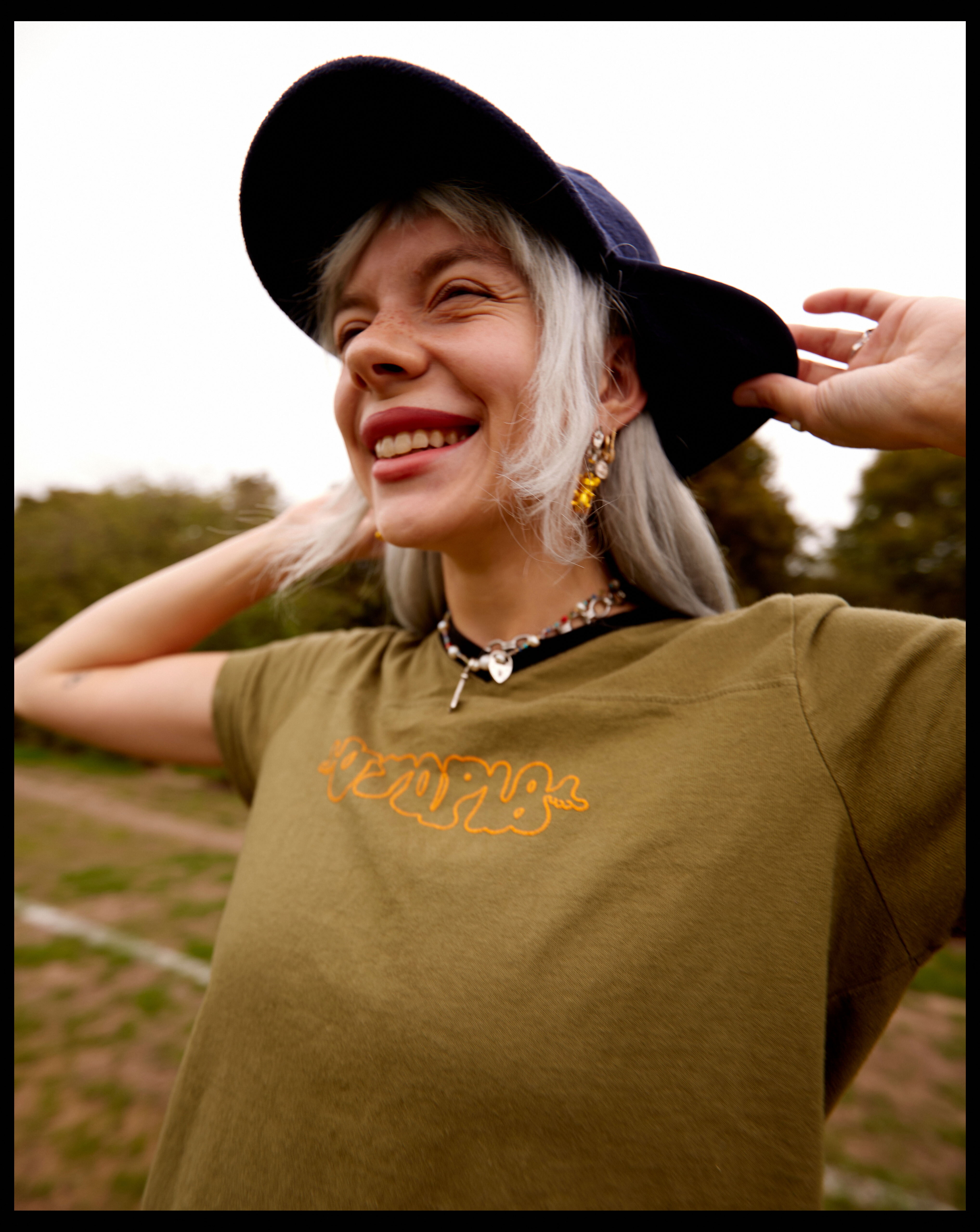
Photo: Ana Trindade
Sunshine State isn’t just the concept of an idyllic world, it’s a joy-inducing mindset.
“I was sick of musicians taking themselves really seriously. I thought I’m going to do the exact opposite. I’m going to make something undeniably happy. And I think that time was really was really tricky; I had a really shit five years. Coming off the back of that, writing that music and actually doing something was really rewarding.”
What’s even more impressive is Pixey’s get-up-and-go spirit. She could “play a tiny bit of guitar – pretty badly”, she admits, so bought a fake Epiphone guitar from Amazon – “the best 100 quid” she’d ever spent.
Many claim to be self-taught, but Pixey is the real deal. And, after the near-death doldrums she experienced, thankfully there was some fortune at the end. “I remember just sitting in my bedroom at home, because I couldn’t really go out, I was still really sick. And I remember just looping the guitar.
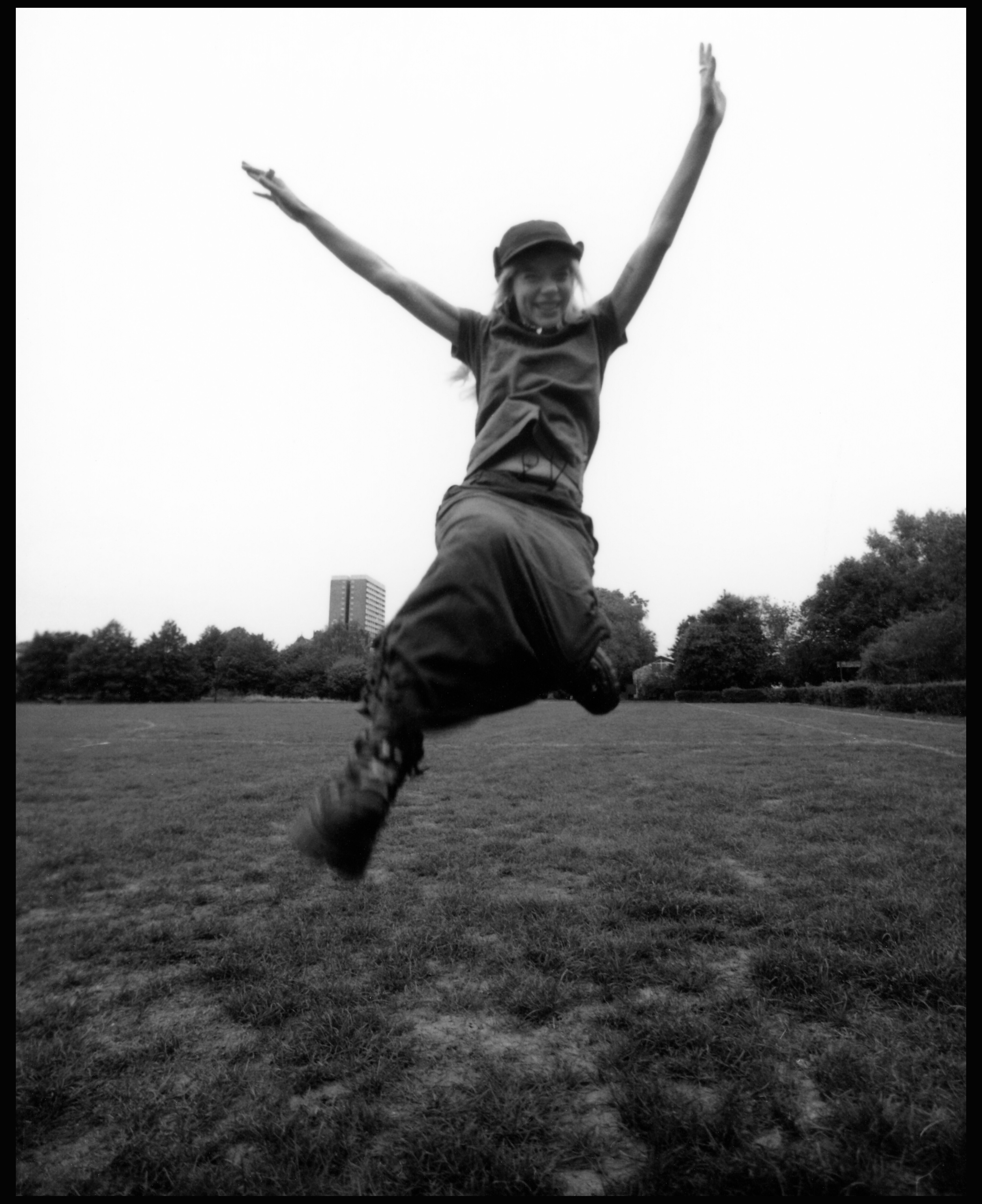
Photo: Ana Trindade
“Then I went on Ableton’s pre-made loops, and it was like a breakbeat. I wrote this little tune called ‘Supersonic Love’ and put it on BBC Introducing.” Typically, BBC Introducing will tell aspiring musicians to give a six-month grace period for their music to be played, but Pixey’s track was aired the very next week.
And yet, despite the apparent ease with which this early success came about, for tracks ‘Supersonic Love’ and ‘Young’ – the latter written simply because Pixey had an interview with the BBC and felt the need to add another song to her bow – there was a turbulent, on-off relationship with fully embracing herself as an artist.
“I was going down to London and meeting all these A&Rs. It felt like it was meant to be after the horrible year I’d had. But like anything, I felt I had this… I wasn’t surrounded by the most supportive people. I think everything just got on top of me; and then I quit, for a very long time. I became a waitress and lost all confidence in myself.”
It would take the breakup of a relationship, and meeting a flurry of music-loving people, including Hawaiian-born, Liverpool-based Eli Smart (“he really helped me build my confidence back up”), for her to turn her hand to music once more. Music had plucked her from misery before, and it would do the same again.
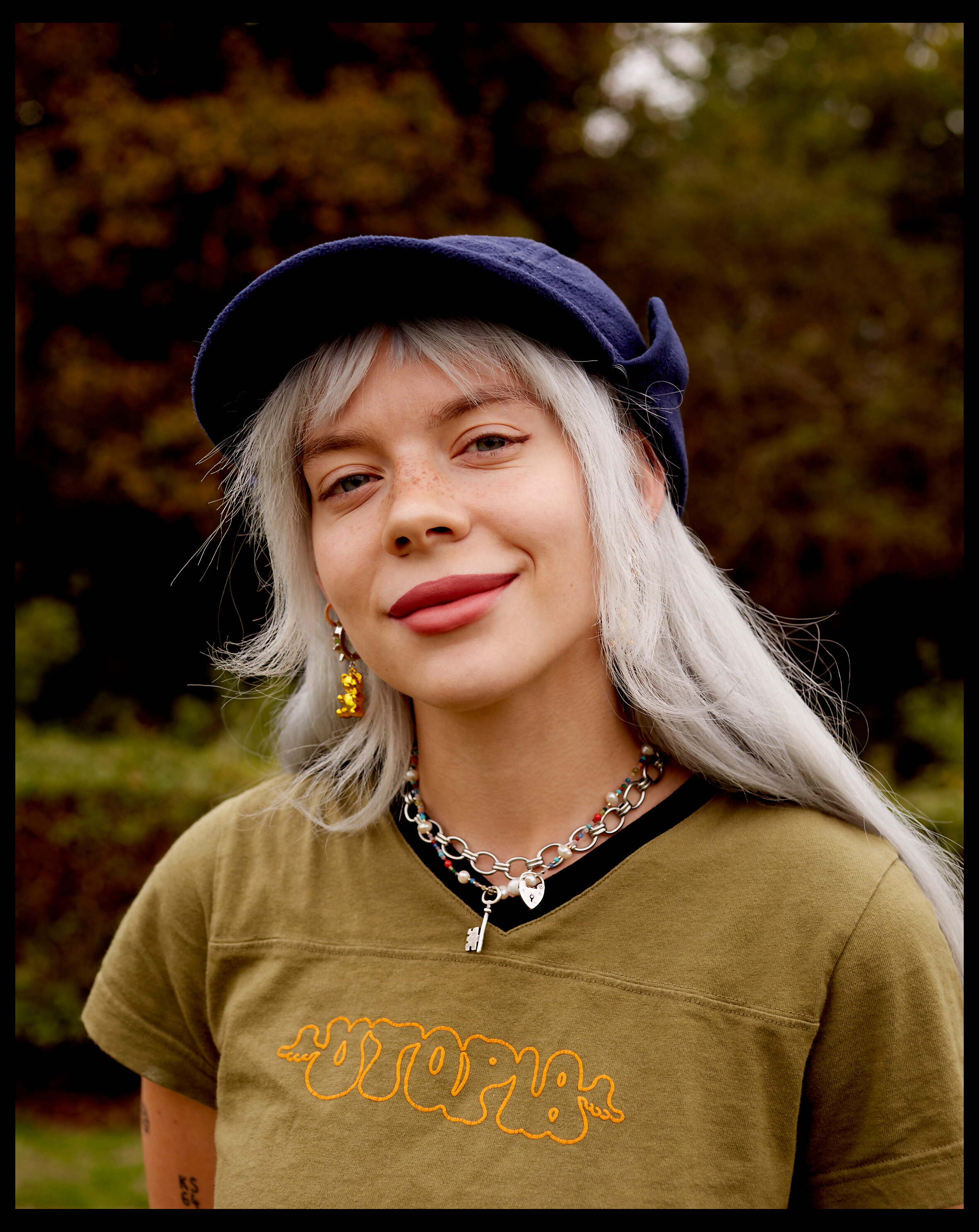
Photo: Ana Trindade
Before long, Pixey was put onto the radar, and ultimately the books of, well-regarded label Chess Club Records – which has become a bastion for finding and developing some of the UK’s most promising acts, from Wolf Alice and Easy Life to Mumford & Sons and Jungle. And once onboard, during a period when live shows were next to nothing, the label nurtured Pixey to overcome a “horrible stage fright”.
“I was literally eased into the world of shooting and recording and live music, because for the longest time I felt so intimidated, being in front of all these people you don’t know, and they want you to write and perform.”
Her new home would prove fruitful in other ways, too. Earlier this year, she played as support for new labelmate Alfie Templeman, on an 18-date run of shows across the country. If ever you needed a jumpstart to overcome stage fright, that would be it.
“I’m a lot less anxious than I was. The tour really helped with that. Being on tour with Alfie – I mean, he’s one of the most real musicians I’ve met, there were no fronts, we were all really honest about how we were feeling. He gave me some really good chats about feeling anxious and how he feels on stage, and it made me feel much better.
“And performing almost every night was totally confronting. You get desensitised to it, and once you get in a rhythm, it’s great. But it was hard trying to relax, not overthinking it, and to think I can actually do it.
“You can get over stage fright. It doesn’t make any sense when it turns up. [For] Shepherd’s Bush [Empire], I wasn’t nervous for that show. But then a tiny show we did in Dublin, I was absolutely bricking it. It made no sense at all, but you learn to get on with things.”
Indeed, getting on with things seems to be the modus operandi for Pixey now, with the release of today’s EP paving the way for “an evolution” in Pixey’s sound and style.
“I’m so excited about where I’m going with it. It feels like a step up in terms of the sound. But I’m really wanting to break out of the indie ceiling now. This mini-LP is definitely within the indie sound.
“I want to take it up a notch, I want to make [my music] more experimental and more, I guess, something I would listen to. I wouldn’t necessarily always listen to my music; sometimes you have to be in a specific mood.
“I think I’m moving into a sound where I’ve taken all the things I’ve learned from live – and all my production techniques – and also, aesthetically, I want to make the world [of Pixey] a bit clearer. I want it to be that you hear it and think, ‘Ah, that’s Pixey’. I just want to take that step up.”
Well, life’s short. This much we know. And Pixey knows it more than most. With this indomitable spirit, ever-improving live shows and an impressive team around her, Pixey is certainly making the most of it.
Dreams, Pains & Paper Planes is out now via Chess Club Records.

